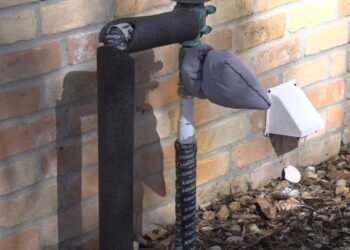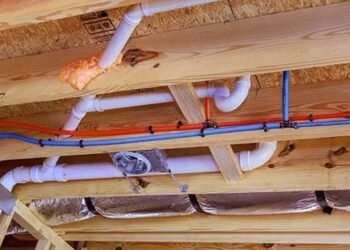Key Takeaways
- Discover the latest advancements in furnace technology.
- Learn about energy-efficient options that can save you money.
- Understand the significance of selecting the right furnace for your home’s needs.
Introduction to Home Heating
Ensuring your home is warm and cozy during the colder months hinges on having an efficient heating system. A critical component of this system is the furnace, which plays a vital role in maintaining indoor comfort. Whether you’re considering furnace repair near Atlanta or looking to invest in a new unit, understanding your options can provide long-lasting benefits. Over recent years, the advancements in furnace technology have significantly enhanced the quality and efficiency of home heating, providing homeowners with more choices tailored to varying lifestyles and climates.
If you’re looking for furnace repair near Atlanta, several local HVAC companies offer reliable and timely service to keep your home warm during the colder months. These technicians are equipped to handle everything from routine maintenance to emergency repairs, ensuring your furnace runs efficiently. Be sure to choose a licensed and experienced professional to guarantee quality workmanship and customer satisfaction.
When exploring different models and options, it can be beneficial to understand the intricacies of each type of furnace. This guide aims to walk you through the innovations in home heating, helping you make an informed decision that suits your specific needs. An effective heating system not only maintains comfort but also optimizes energy use, leading to noticeable savings and reduced environmental impact.
Understanding Furnace Types
There are several types of furnaces to consider, including gas, electric, oil, and propane models. Gas furnaces are well-known for their efficiency and cost-effectiveness, often considered the gold standard in modern heating systems due to their lower running costs. Electric models are known for their reliability and ease of installation, making them an appealing option in areas where gas is not available or when an eco-friendly electricity provider services the area.
Oil furnaces, though less common, provide strong heat output and can be a good choice in very cold climates due to their robust heating capabilities. Propane models offer flexibility, especially in rural or remote areas without natural gas lines. Choosing the right type involves balancing initial costs, energy efficiency, and the expected lifespan of the unit. Each type has its strengths and weaknesses, with factors such as fuel availability, local climate, and home size all influencing the decision. It is crucial to assess these aspects thoroughly to find the best fit for your home needs.
Energy Efficiency and Cost Savings
A significant consideration when selecting a furnace is its energy efficiency, which directly impacts your utility bills. Modern furnaces are often designed to exceed energy efficiency standards, ensuring reduced environmental impact and lower monthly costs. High-efficiency furnaces generally come with advanced features that increase their performance while reducing energy consumption. Investing in a high-efficiency furnace can end up in substantial long-term savings, making it a worthwhile investment.
When evaluating efficiency, pay attention to the Annual Fuel Utilization Efficiency (AFUE) rating, which indicates how efficiently a furnace converts fuel into heat. A higher AFUE rating means more savings and less waste. This translates to a better return on investment over the lifespan of the furnace, reinforcing the importance of selecting a model with a high AFUE. With energy costs consistently on the rise, ensuring your furnace maximizes output while minimizing input can make a notable difference in your overall home budget.
Innovations in Heating Technology
The past few years have seen impressive advancements in heating technologies. Features like smart thermostats allow precise control over heating schedules, increasing comfort while reducing waste. These thermostats can learn your preferences, adjusting the temperature to optimize comfort while you’re home and saving energy when you’re not. Variable-speed motors adjust the airflow to the home’s needs, optimizing energy usage and improving indoor air quality through consistent air circulation.
Introducing these technologies into your home heating system can result in a tailored heating experience that’s comfortable and cost-efficient, providing a smart solution for modern living. By automating and personalizing the heating process, homeowners can achieve ideal indoor conditions with minimal manual intervention. As technology continues to progress, these innovations promise even greater enhancements in comfort and efficiency for future heating systems.
Environmental Considerations
Today’s environmentally conscious consumers are increasingly aware of the ecological footprint left by traditional heating methods. Choosing a furnace with a high-efficiency rating not only benefits your wallet but also reduces greenhouse gas emissions. Transitioning to more renewable and less environmentally damaging options can have significant positive effects on the planet. Exploring renewable energy sources can further enhance your home’s sustainability profile, utilizing cleaner energy alternatives where available.
Opting for eco-friendly options aligns with global efforts to mitigate climate change, all while promoting healthier living conditions. By lessening dependence on fossil fuels and embracing renewable technologies, homeowners contribute to a sustainable future while also benefiting from the reduced energy costs usually associated with these greener options. Every small step towards improved energy efficiency counts, adding up to significant environmental impacts when adopted by many.
Conclusion
Choosing the right furnace for your abode involves understanding various aspects, from energy efficiency and environmental impact to advanced technological features. By making informed decisions, you can secure a heating solution that is both economical and eco-friendly, ensuring a warm and inviting home environment. Evaluating all options and considering expert advice can save money, enhance comfort, and contribute positively to the environment, making the investment well worth it in the long run.












